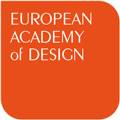This conference hub explores the present and future possibilities of doctoral research and education in design through creative practice research, located in making and materials, critical theory and history, and by identifying ways in which new knowledge emerges in studio-based inquiry. We use the term ‘extreme making’ to suggest the breadth of practices in design, from established craft skills and techniques, through to smart technologies and materials, artificial intelligence, virtual reality and systems design. As new technologies of making generate new forms of practice, we recognise a related expansion of methods associated with design research and intrinsic to doctoral research. This ‘methodological pluralism’ (Borgdoff, 2019) presents the field with exciting possibilities. At the same time, critical themes in doctoral design research and education have intensified over the past twenty-five years to encompass climate injustice, identity politics, sustainable, cyclical, and slow-growth economics, and human and more-than-human relationships.
We also recognise that new articulations of worldviews, such as New Materialism, combined with practice research, impact the normative forms of doctoral submission, examination, and claims to contribute to knowledge. If, as Rosie Braidotti has surmised, we are facing a whole ‘new paradigm’ in critical theory, we want to discover how doctoral research and education might best use theoretical knowledge attached to design histories, particularly in critical and speculative design. Conversely, in what ways are doctoral candidates in design framing futuring and world-making as research?
These themes are key to the practice and quality of doctoral research in design yet pose a particular set of challenges and opportunities for supervisors and candidates. Therefore, we invite delegates to join us in exploring the lively and diverse possibilities of doctoral research and education in design, and welcome submissions from doctoral students, early career researchers, supervisors, and senior researchers.
Themes of enquiry/questions:
• Theoretical knowledge of design and its histories as embedded in doctoral research and education
• New craft methods emerging in design research and education, for example, through digital and post-digital crafts
• ‘Extreme making’ in design research as a response to present-day challenges? For example, of limited resources, slow-growth economics, and sustainable goals
• The challenges and opportunities of ontological design in doctoral education
• Design research and education as creative practice in and beyond the studio: partnerships and participation
• ‘Extreme making’ as ethics: care, ecology, multi-species interactions

